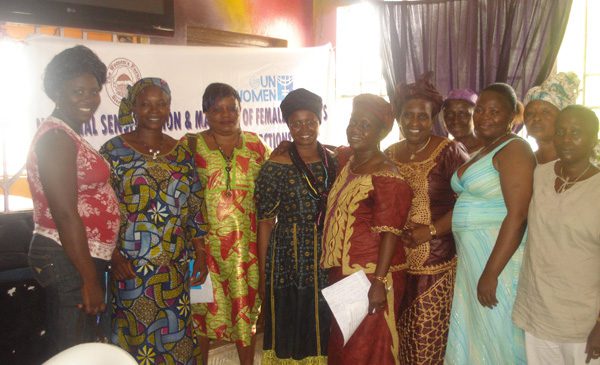
by Oxfam intern Jarrod Strauch
Sierra Leone has held its first ever national conference on women’s property and land rights, bringing together over 160 participants to develop new strategies in fighting the denial of basic rights to Sierra Leone’s women.
The conference, held between 6-8 June at the YWCA of Sierra Leone, brought together 100 women from communities around Sierra Leone and 60 other participants representing policy makers, traditional leaders, and non-government organisations. Two women’s land rights activists from Zambia and Kenya spoke at the conference, sharing their experience of positive work to empower women from other parts of Africa to seek to address the denial of their rights to property and land.
The US State Department’s 2011 Investment Climate Statement found that women constitute up to 80 percent of the agricultural workforce in communities across Sierra Leone, and agriculture accounts for over half of Sierra Leone’s income – with women farmers directly affecting 40 percent of the national revenue.
However, the large majority of women farmers do not have full access to, or control of, property and land. They work on family, chieftaincy or community property, which is not protected under Sierra Leone’s state laws. 12 of 14 districts in Sierra Leone are governed by customary law, where paramount chiefs, the “custodians of the land”, allocate land to individuals or families, and most ethnic groups in these districts do not allow women to inherit land and property.
Many of these women also live in rural communities where tradition dictates that women are themselves the property of men, leading to situations where they are both unable to own their own property and face the risk of violent or abusive situations if they attempt to gain economic independence.
According to Musa Tamba Sam, Member of Parliament for the Kailahun district, “The culture considered the woman as property, and she is amongst the things shared out by the family.”
While Sierra Leone’s 2007 Devolution of Estate Act criminalized the act of depriving a woman from inheriting her husband’s property after his death and imposed penalties for evicting a spouse from the marital home, the vast majority of Sierra Leonean women live under traditional law structures that are not governed by, or simply ignore, statutory law.
Roisin Cavanagh, manager of the Women’s Property and Land Rights project at the Cooperazione Internazionale, believes that progress in women’s rights means weighing up the importance of tradition against the value of development – especially when it comes to women’s ability to own land independently.
“As we all know, women often use their income from farming to pay for their children’s school fees, medicine and clothes – if they lose access to the land they farm, they cannot pay for these essential life requirements,” she says.
“Whilst traditions are really important, it is time that we really think about whether traditional laws and practices should impede the development of villages, towns and the country as a whole.”
Gladys Brima, the founder of Women’s Partnership for Justice and Peace, says the current system of land tenure is discriminatory.
“The land tenure system in the rural areas actually affects women the most,” she says. “Women use the land more. But when it comes to ownership, women do not own the land.”
The conference began the national campaign on Sierra Leonean women’s rights to land, which will run until October 2012. The conference was organised by COOPI, Oxfam, Forum for African Women Educationalists (FAWE) and the Sierra Leone Youth Empowerment Organisation (SLYEO).